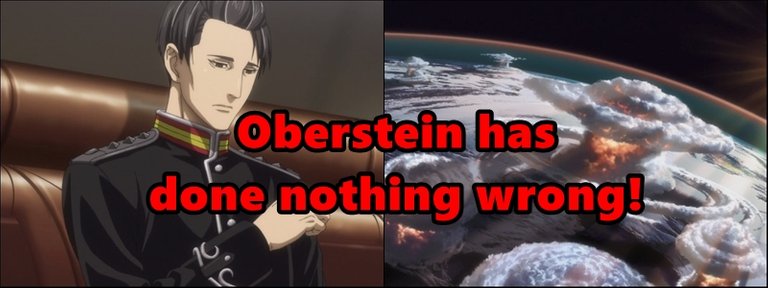
Get ready to read a lot :).
I have already published this text, but due to HiveWatchers, I expanded it accordingly. ---> https://peakd.com/hive-134382/@herosik/dlaczego-cyniczni-i-zli-ludzie-sa-potrzebni-u-wladzy-feat-paul-von-oberstein
Attention! There will be spoilers for Season 1, 2, and 3 in this coverage! If you don't want to know the plot then stop reading at this point.
The text was originally intended to be part of a discussion of Volume 3 of LotGH, but it has grown to such an extent that I thought it would be better to make a separate text out of it. By the way, it will be a beautiful example of how this anime and books are full of great storylines for lovers of the art of ruling the state. I decided to use it to write an essay that would introduce people unfamiliar with politics to this topic, and perhaps make the rest of them think. Perhaps there will be more of them in the future.
Since I fell in love with this title, I consider which country (yes, I know, in the case of such large organisms, calling them countries does not make sense, but to facilitate the discourse I will call them that) I would support. I have been a supporter of the Empire from the beginning. The older I get, the more I am strengthened in my opinion, but I also see more and more advantages of democracy, disadvantages of the Empire, and I understand more and more Winston Churchill's words - "Democracy is the worst system, but nothing better has been invented." Some time ago, and more specifically, when there was an inba on Capitol Hill (how Trump's voters invaded him), I talked to my buddy and proofreader Karol about the advantages and disadvantages of democracy - i.e. the voting system, socio-political conflicts, armed seizure of power and why better it is when change occurs slowly but naturally (when widely accepted, at least by most citizens). During this conversation, I was a supporter of quick changes, even imposing them (more specifically the introduction of electoral censuses, correction of democracy), while Karol criticized revolutions and supports the current system and slow changes. Some time has passed since our exchange of views, and I have had time to think about this and that and today I will present you my conclusions.


Let me start by introducing you to my perspective. I prefer the Empire because it is easier to change. There are some, in my opinion, unnecessary restrictions, and the ruler can, with a few specific moves, introduce changes that a given country needs. The ruler does not have to worry about the opinion of others (as long as his rivals or factions with a different vision of the state are not too strong or influential), the vision of the state is coherent and its development is more oriented - either to the disadvantage or to the benefit. Perhaps I am wrong (if so, please correct me), but it seems to me that stagnation was less common than in democracies. At the beginning I forgot to add - I prefer the Empire, but under Reinhard von Lohengramm. The Goldenbaum dynasty was a relic of the old days - it had a strong aristocracy, the rulers (or at least the ruler Kaiser Friedrich IV) and their advisers, military, ministers, and the chancellor were closed in their bubble like a jar of jam, and thus the changes were taking place too slowly, there was a lack of fresh blood and a fresh perspective on reality. A bit like our situation when we are ruled by old rulers like Trump, Biden, Putin, Merkel, Xi Jinping, Erdogan. We also lack someone independent, strong, a person from outside the concrete environment. Strong enough to be deepstate and other forces (such as other powers) would not throw him off the saddle. Unfortunately, in our reality, regardless of the era, it was impossible or nearly impossible. There have been such cases in the history of the world, but the system has protected itself against it (by the system I mean deepstate and players with an established position who care about the current status quo, because they feel at home in this environment). And even if it happened by chance, there are various methods (media, bureaucracy, other politicians with sufficient power, conglomerates of influential and wealthy groups) to tie the hands of such a ruler and at least make it difficult for him to rule. What is art and culture for ... from letting go of your imagination and showing such exceptional situations.
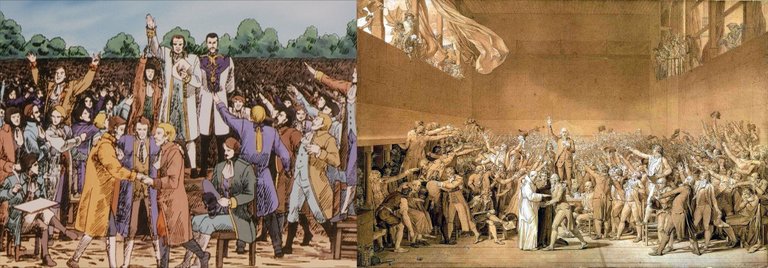
So as long as I do not support the dictatorship, because although it can be much, much better than in any democracy, there is a great chance that it will be many times worse. And even if not, there can be systematic revolutions and civil wars for power - as we saw in Season 2 of the Lippstadt War or from the history of the 19th century. And these cannot be controlled, at least from a certain moment, and they can explode like a grenade in our hands ... Or even worse - in panties. But I support Reinhard and Oberstein, together they make an excellent duo. The blond is a charismatic, intelligent and fair Kaiser, and his soldiers and admirals fight like lions. He is also a lion himself, not only visually but also in terms of personality. If his men have nothing meaningful to offer him, he quickly brings them to order. Apart from Kircheis and Oberstein, although in both cases he does it for different reasons - his friend was the closest person to him, someone to rely on always and everywhere, while Paul is too intelligent and perceptive, which is why he summed it up more than once in an unpleasant way for him (something like a woman with similar features to Paul, who is pissed - never piss them off, your life will turn into hell). As for the people who stand in his way, he either murders them or presses them down with his shoe so hard that they give up on their own. Oberstein, in turn, is a master of intrigue, an outstanding liar, a visionary strategist whose ideas are later put into practice by his (and Reinhard's) tactics. A motherfucker who can do any meanness if it serves the state. He is such a Trotskyist. I support them because they genuinely care about citizens and the condition of the state. You can't see it directly, but Yoshiki Tanaka clearly outlined his motivation and the way he operated. He is not driven by a thirst for endorsement, as was the case with Alliance leader Job Trunicht. Sure, his fuel is ambition and his will to own all the galaxies, but that doesn't mean his thirst for power has overshadowed his other goal. This goal is to get rid of the aristocracy, hand over their riches to the common people, improve their living status and wealth, with which he surprisingly resembles his arch-enemy Yang Wen-Li.
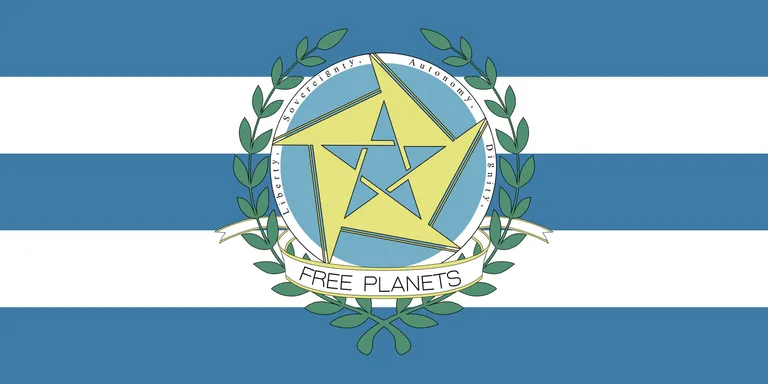

In the past, I was not a fan of him, and most of all of the Free Planets Alliance itself, especially after Job Trunicht and his subordinate politicians started to dung him. I mean the accusations of acting against one's own country (which was initiated by Phezzan, and implemented by the aforementioned politician), i.e. the destruction of Artemis Necklace, the oboe system. Then, more than a decade ago, I started to like him, and today with the new anime and reading books, I genuinely liked him and understand his perspective better and better. Yang has spoken flatteringly about his opponent on several occasions, praising his policies and even recognizing the advantages of a dictatorship, if the leader is someone like Reinhard. More often, however, he wondered if and when Reinhard would become something like Rudolph von Goldenbaum, and he also criticized the dictatorship or anything that resembled it (such as a provisional government that briefly seized power over the Alliance capital). In the past, I did not understand his views, but with each year, i.e. gaining experience and humility, I understood that despite all the flaws and pathologies that Wen-Li notices, democracy is a better system. The leader does not have such a free hand, it is limited and controlled by the sovereign in the form of citizens (even if most of them do not understand how the game called politics and state management works), there are structures that can block his too much ambition (and which do not must have strength in the form of armies, because their power comes from rules that everyone has agreed to). In general, Reinhard's counterpart has to be flexible and have really large resources to partially come close to the dictator's power. To illustrate it better - The dictator, provided he has stabilized his position and has a real force behind him, which he can use to exert pressure (in the case of democracy, this is, among others, large support in elections, support for interest groups, i.e. large companies, wealthy people or powerful unions, preferably everything on this list, and a few others), can simultaneously act as a leader, chancellor, supreme commander, and sometimes also the most important judge. In the case of the leader of a democratic country, the role of the supreme judge is eliminated, and, if the given system so provides, the chancellor or the prime minister (he may have his figurehead, but if he is not 100% dependent on him or blackmailed him, he has some autonomy). He is left with only the highest army commander and leaders (with some restrictions or not, depending on the political system). Reinhard can just fuck any human out of office (if he can), Job must have a reason to do so, as in Yang's case. Reinhard can order universal mobilization for war, and at best he has to appease somehow the groups that oppose it, Job is bound by law and legal procedures. Reinhard can decide the fate of any citizen, Job cannot do it because it is not in his competence.
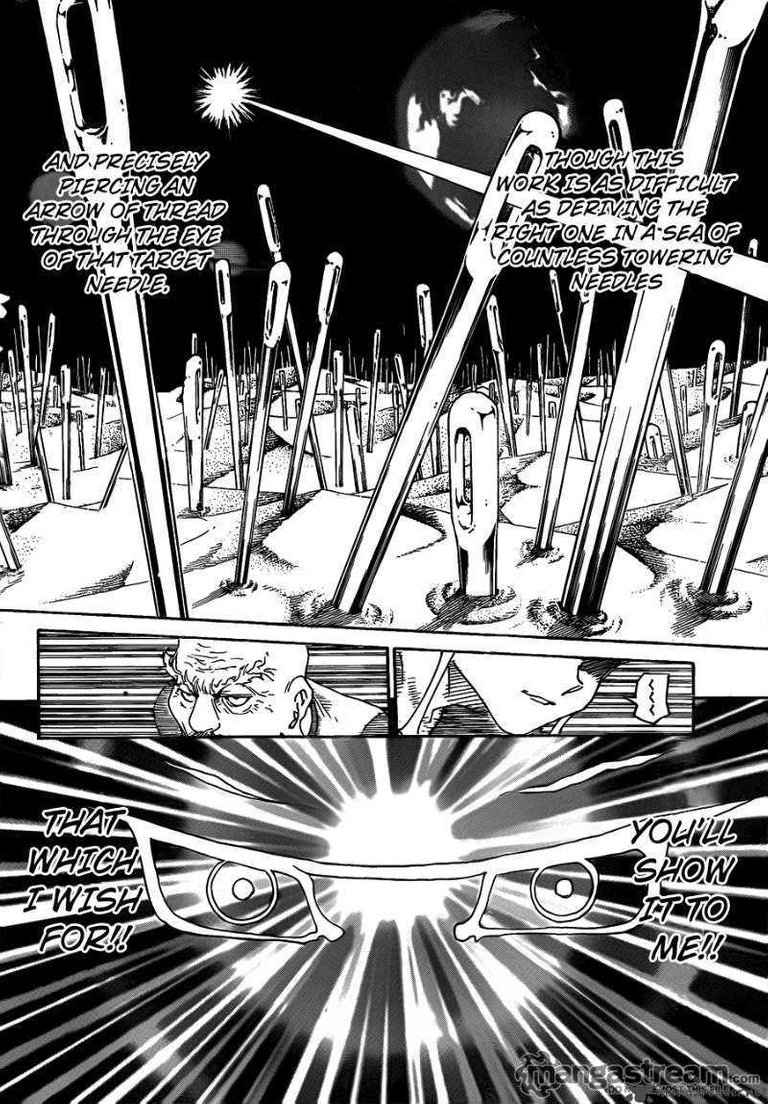
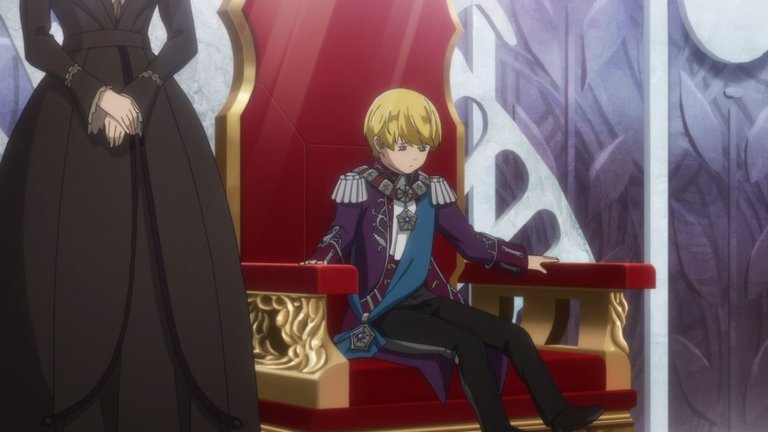
The time has come for a summary. So, Charles's arguments and the Legend of the Galactic Heroes books disproved mine. Does this mean that I was 100% wrong? No, I believe some changes can be made. However, it cannot be done too quickly, on a day-to-day basis. However, you can speed up this process, as well as start propaganda activities to convince people of your arguments. For example, to direct democracy, the introduction of censuses or tests that would make people who know politics (as I immodestly say, e.g. me) have a stronger vote, and people who are unfamiliar with politics would have a weaker voting power. There would be a few more individual points, but they are insignificant to the things in which I was wrong. Few individuals will be able to bear the burden and will not be corrupted (or at least they will slow down the process as much as possible and reduce the number of consequences), but these are as rare as the chance to find the perfect needle on a planet where there are millions. Kind of like in HxH, you have the manga screen at the bottom. "Power corrupts and absolute power absolutely corrupts," as the philosopher John Acton used to say. I believe you can find a man like Reinhard or something like him, but before you can find him, if at all, you would have to test thousands, if not tens of thousands, of candidates. And there will be a lot of blood, pain, sorrow and death. Despite my aversion to democracy, this system is less harmful. In the end, it is easier to make corrections, shorten certain procedures, mobilize officials and politicians to the same responsibility as in the case of an ordinary employee in an ordinary company - i.e. if he does something wrong, he is accountable to the director or his superiors. There is no such thing in the case of politicians. Ie. is the so-called "political responsibility" but it is just as pointless as "social justice". It is neither justice nor good for society - because by what right is a man to pay a healthy person for being lazy or not taking advantage of his chances? What responsibility is this when he can do bad things and is protected by immunity? How political, since it can still be elected by the voters stupid or deaf? However, this is a topic for another discussion.
One thing escaped my attention during the revision of the last text. Remember what I called the leader of the Democrats in the previous text? Well, Oberstein is an even bigger, sharper, even more cynical and cheeky whore. However, I wish Poland would have as many unfeeling motherfuckers as possible. Not necessarily as leaders, because we would have a similar tyranny as in Russia or Belarus, but as an advisor? Please give me as many as possible. I did not check this information because I lack knowledge of history, but I once heard from two sources (including one doctor of history) information about how elite candidates were previously trained in England. More specifically, children who went to a special school. Kind of like training a young prince from a certain age to be king (or warriors of Sparta, in a different context). Such children were taken for training, they were taught diplomacy, the art of governance, resource management, manipulation of people (what we would formerly call a psychology unknown at that time), cut off from emotions, focus on gains and losses, important things, and generally cold look at reality. If a child exhibited the appropriate intellectual qualities, had a tough character, a strong personality (do not confuse this with a stable personality), then he would grow up to be an outstanding but crippled individual. An ordinary commoner was able to achieve such a level if he had access to books, his parents could afford teachers, but such cases were not enough and the process of creating such people as Paul von Oberstein had to be implemented.
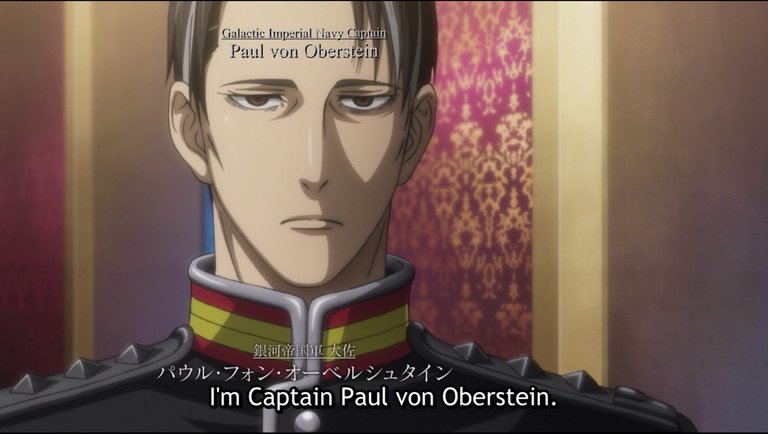
He is not a man who is easy to like. I suspect that would be impossible for most of us. Not only because a few are able to reach his level, be it intellectual or separation from society (even against the background of eminent introverts), but above all because he completely separated from emotions and almost 100% of human reflexes. He is a man who has a processor instead of a brain, and his soul is guided only by the balance of profits and losses, finding the right people to rule the state and such matters. Why are such people so important? Mainly because there are situations when you have to throw away all emotions, likes and dislikes. The common man has the privilege of being able to say whatever he wants, to act without a major plan, giving himself permission and space to make mistakes. As a rule, this changes as people start a family and have children, and people usually become more responsible. Anyway, you do not need to put it on, it is enough to have an animal that requires more attention and responsibility than fish or other turtles. However, this is nothing when it comes to managing a huge state, which in turn is a small challenge when ruling a multi-billion nation that lives on several dozen planets (if not several hundred). Sometimes a parent has to do something against himself and / or the other side, for the good of the child or wife (and vice versa, so that it is not - sometimes the wife has to do something painful for the husband or child for their good). Then there is often an attempt to fight for their own, cry, anger, generally emotions that people often avoid because they hurt them.
Well, when it comes to ruling the state, the matter is even more complicated, because it does not only apply to people we know, but to billions of lives. Sure, it does not always translate directly into their welfare, often not even, but in a broader perspective it does. A simple example - the profits of Western countries from having a colony (opinions differ, i.e. some believe that the gains were small, others that the gains were large, but the profit and loss balance was generally +, so it was profitable ... At least in most cases) . Is it fun to buy a new iPhone at a human price? Well, I would like that too, but my country could not develop to such a position that it could afford it. Is it fun to be able to work and have the resources for just your whims? I have given a bit simplified examples, I admit, but this is how it looks. Everything has a price, including a luxurious life. Most people don't want these changes, don't want to sacrifice themselves or experience a sadness that they can't control. Ruling and being number 1 is only seemingly enjoyable, and in fact it's a thankless task. When all is well, hardly anyone appreciates it, but most will remember the bad things. Few perceive, and even fewer understand, the responsibility of a leader in connection with the complexity of his position. Askeladd showed it very well in the anime "Vinland Saga" - being a leader comes with certain privileges, but also with limitations and big consequences in case of showing weakness. It can also be compared, albeit from a slightly different angle, to a fight in a ring, an octagon, competition in some other plane or other competition, e.g. the profession of a film director. It may seem simple, but a person without experience does not realize how many things he does not know yet, and will have to find out in order to at least start earning a living this way. Talent or talents make a lot easier, you know, but it's primarily a matter of hard work and study. In addition, it requires knowledge from various fields - e.g. knowledge of many aspects that psychology deals with, knowledge and practical skills in the field of logistics, skills in managing people, resources, imagination, knowledge of art, creating your own worlds. Few people can learn, understand, and combine all these things while achieving a beneficial outcome for themselves. The bench of such candidates is extremely short, but the risk and competition are incomparably high.

In developing my answer to a previously asked question, one aspect of the policy is to extract beneficial effects for us from events, to exploit other people's mistakes and (if possible) to control them. I mean using Kircheis' death to increase Reinhard's appetite for success, strengthen his character, etc. It is about eliminating the chancellor who was falsely accused of commissioning the attack on the Marquis. It was a dirty move, but necessary from the perspective of Reinhard's faction. Even his trusted commanders admitted it when Oberstein came to them with such an idea. They were reluctant to agree with him, and one of them, perhaps Mittermayer, said, "I wouldn't want you to be my enemy, Oberstein." It is similar with governing, especially in conditions of war or when our (or our country's) situation is in some way unstable. The main brain, i.e. in this case Reinhard, cannot be overloaded with an excess of duties, because he will not have enough capacity and he will not be able to make good decisions, both on the battlefield, as part of state management and plotting intrigues. During a crisis, he has to focus on the most important problem, leaving the smaller ones to his subordinates. A counselor does not have to be charismatic, does not have to be strong and flexible at the same time (strong enough to stick to it and rigidly pursue it, as well as be able to adapt to new circumstances), does not have to be brilliant or broadly qualified (at least enough to understand all the very and less important aspects affecting governing), but must have a lot of time + good living conditions provided (not to worry about food, place to live and other things). He must have them in order to think or act on organizational issues, planning subsequent moves on issues beyond the qualifications of his ruler. To do this well, he must have additional rights, such as the ability to answer only to his bosses and full access to all data and resources. A simple example from our reality, the Disney case - since Kevin Feige forced his employers to answer directly to them, thereby eliminating the entire chain between them, the entire MCU is better managed. You can call Oberstein a disgusting prick, a man we would not like to shake hands with because of the number of dead bodies in the closet and ruthless Machiavellianism in his pursuit of goals, but to say that he is a poor steward, unnecessary advisor, or unhelpful tactic would be a hideous lie.
Since I mentioned its bad qualities and taking advantage of other people's mistakes, I am already developing this topic. You may not agree with this statement, but life is, in fact, an eternal struggle for a better existence, for yourself or the closest ones, etc. We are in times of peace right now, we don't have that many immediate threats to life, so you may not see it, but think about it a bit longer. Of course, people help each other more during the war, but this applies to people from our tribe, group, inhabitants of our community. Single acts of heroism do happen, but as the history of mankind so far has shown, they are ... single acts of heroism. In other words, a minority, because people are ready to sell a stranger or put him on a train that will take him to a concentration camp, if only to save their lives or loved ones. Possibly to get rich or get other goods. Everyday man does not think about it, just like about the lack of the meaning of existence (if we do not give it ourselves, therefore religions, despite their faults, are a sad necessity), because they would go crazy. Anyway, even such local ties can break when the threat is too powerful and the lack of cooperation gives better chances of survival. Sometimes you also have to sacrifice 10 people to save 100. Oberstein rightly noticed (like the hero of "The Imitation Game", whose review I will post on the blog soon) that if a different decision had been made, the war would have lasted longer and would certainly have killed more people and consumed more resources. Every human life may and should be respected, but Paul's conclusions are equally important and worth at least careful consideration. It will sound cruel what I say now, but well ... Talking about respecting all lives is good in a time of peace, not a stage of war. If a smaller good can be sacrificed to gain a greater or much greater gain, it is usually done. You may disagree with it, but this is the objective reality that humans cannot change.
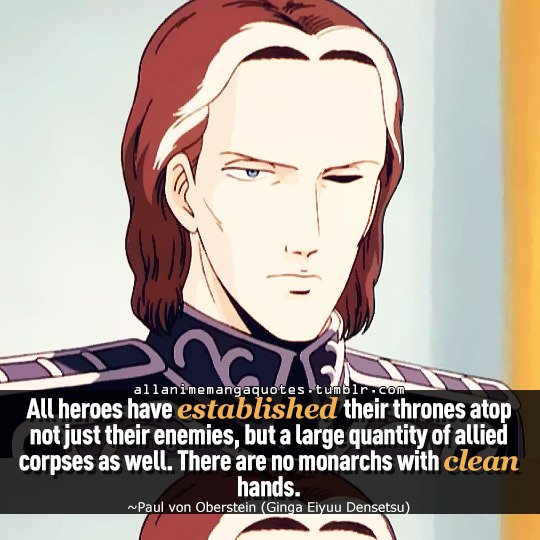
The same is true for exploiting your opponent's mistakes. Just as life is inextricably linked with some form of struggle, competition, cooperation with others, most people are unable to get rid of taking advantage of other people's mistakes. Of course, sometimes people turn out to be honest, I don't deny that, but how many people have this honesty because of a low risk of consequences, and how many people are honest? If we lose little on it, and we can save a lot, e.g. time, emotions + the other side gives us the opportunity to act, why not take advantage of it? We see it from a young child, as e.g. parents try to influence a child who is reluctant to fulfill their will, pedophiles or other sadists who use their advantage at various levels to fulfill their desires, teachers, husbands or wives who want them the other half devoted more resources than us. There are many examples. Of course, hardly anyone goes to the level of insolence, but if we do not know someone, do not respect someone or our dominance is significant on several levels, we can afford it, because we probably will not feel the consequences of our decisions - there will be no one to measure them to us. or they will not be felt. Exactly the same as with the Westerland massacre. Reinhard could stop the madness of the local Stalin, who decided to murder all his citizens, because they murdered his nephew. Oberstein might have convinced him, but he did the opposite - he started pouring gasoline into the fire. He argued that the war would last shorter, more people would survive, the state budget would suffer less, the nobility who declared neutrality from the two of the evil ones would choose Reinhard according to the principle of "shit but stable", which is usually a better choice than the support of an unstable man with an ego drastically exceeding his intellectual opportunities. Consequently, Lohengramm will consolidate its position, win more and lose less. Even if this case came out later, the consequences of this fact will be smaller for the time that has passed + he will be able to play the card "if I did not do it, it would only be worse". Anyway, even if it were so, the winners create their own narrative, and if it can be encapsulated with substantive arguments rationalizing it, so much the better. Winners write history.
And that's it for me. If you have a different opinion, I will be happy to discuss with you.
The source of one of the pictures --> https://allanimemangaquotes.tumblr.com/post/119312538649/requested-by-lollipopcitrus-fb-twitter
Przez Ciebie zacząłem to oglądać i jestem po pierwszym odcinku. Imponuje liczba szczegółów bitwy a moje wewnętrzne RTSowe dziecko cieszy się jak głupie. Do Twojego tekstu wrócę jak będę gdzieś głębiej w fabule :D
Swoją drogą, odradzam ten tekst, bo są spoilery z 3 sezonu (jak coś, opublikowałem też jego pl wersję). Ale zachęcam do przeczytania recenzji 1 i 2 sezonu oraz 1 i 2 tomu.
Jestem mega zadowolony, że przekonałem kolejną osobę do tego anime :). Dalej jest tylko lepiej - jest więcej bitew, polityki i rzeczy, które wydadzą Ci się znajome z RTSów. Np StarCraftów.
Jak skończysz 2 sezony i będziesz miał ciśnienie na kolejne, to możesz obejrzeć stare anime. Nie zestarzało się zbyt dobrze, ale masz świetną muzykę i fabułę z książek. 3 właśnie powstaje, każdy ekranizuje 1 książkę, a tych jest 10.